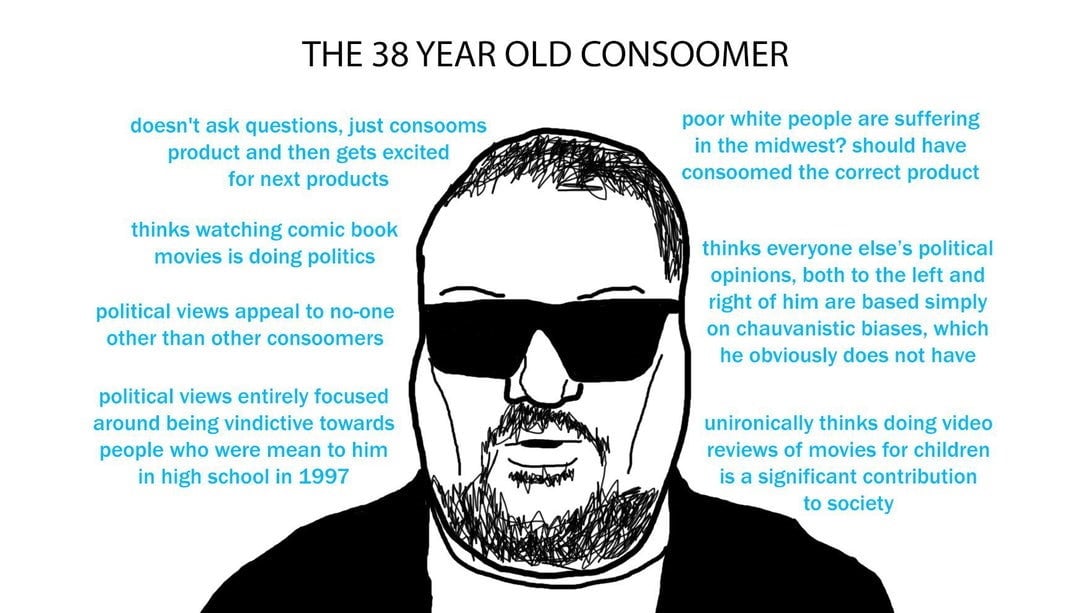This episode of Security Now covered Google’s plan to deprecate third party cookies and the reaction from advertising organizations and websites.
The articles and the opinions of the show hosts are that it may have negative or unintended consequences as rather than relying on Google’s proposed ad selection scheme being run on the client side (hiding information from the advertiser), instead they are demanding first party information from the sites regarding their user’s identification.
The article predicts that rather than privacy increasing, a majority of websites may demand user registration so they can collect personal details and force user consent to provide that data to advertisers.
What’s your opinion of website advertising, privacy, and data collection?
- Would you refuse to visit websites that force registration even if the account is free?
- What’s all the fuss about, you don’t care?
- Is advertising a necessary evil in fair trade for content?
- Would this limit your visiting of websites to only a narrow few you are willing to trade personal details for?
- Is this a bad thing for the internet experience as whole, or just another progression of technology?
- Is this no different from using any other technology platform that’s free (If it’s free, you’re the product)?
- Should website owners just accept a lower revenue model and adapt their business, rather than seeking higher / unfair revenues from privacy invasive practices of the past?
Would you refuse to visit websites that force registration even if the account is free?
Lots of sites require a free account these days. I don’t visit those sites.
What’s all the fuss about, you don’t care?
I care.
Is advertising a necessary evil in fair trade for content?
I like advertising - how else are you supposed to find out what products/services are available? Regularly visit every website of every company I might be interested in? That doesn’t work.
It’s data collection I dislike, nothing wrong with ads as long as they’re a reasonably short interruption. Make ads relevant to the content, not the visitor.
Unfortunately under the current system I don’t see ads, because the only way to block tracking is to also block most ads. Sorry, but ad networks have burned that bridge. It’s going to take time to rebuild it.
Would this limit your visiting of websites to only a narrow few you are willing to trade personal details for?
A website would need to offer some really valuable service for me to “trade personal details”. Even sites where I have an account (e.g. YouTube) I generally don’t log into that account.
Is this a bad thing for the internet experience as whole, or just another progression of technology?
I think anything that gives users control over wether or not they’re tracked is a good thing - and forcing people to sign up / agree to terms before using a site does that. If websites want my personal details to access them… that’s fine with me. I just won’t use those sites. Other people will make a different decision. It’s how it should be.
I also think I’m not alone, and plenty of major sites will choose to just not do any tracking. I look forward to using those sites.
Is this no different from using any other technology platform that’s free (If it’s free, you’re the product)?
I reject that premise. Lemmy is free. I don’t feel like “the product” when I use lemmy. The product is the content and the discussions. If Lemmy has a few ads on every page, I’d be fine with that. I think it’d be a good idea - as long as it’s done right, without invading privacy.
Should website owners just accept a lower revenue model and adapt their business, rather than seeking higher / unfair revenues from privacy invasive practices of the past?
It’s their business, choose whatever revenue model they want. Just be honest and open about it.
I like advertising
🤮
You had to sign up for a free account to post this comment don’t you?
You had to jump over the point to post this one
Did I? You signed up for an account where data collection is wide open to everyone.
Which was irrelevant.
The user had commented that they didn’t want to sign up to browse content and then they further clarified that making a comment was worth signing up for sometimes.
But for some reason you are insisting the context doesn’t matter? Either signup is always good or bad, we have to choose?
Overall I’m just tired of hearing how _____ is going to ruin the web, or how evangelical people get about not doing something on principle. Sites that “login-wall” their content aren’t going to succeed, but people refusing to create an account acting all doom and gloom are getting to be insufferable.
the user just stated an opinion. you still didn’t explain why the context didn’t matter to you. sounds like you’re one of those people who is annoyed by principals. maybe Lemmy is not for you.
You may be right about the last point. My feed is full of posts from three days ago, talk of cutting off parts of the fediverse that seems to be the antithesis of federation, and other evangelical stances that are abandoned the second consequences come up. It was amusing at first, but it’s starting to seem like a waste of time. Idk.
Constantly being brainwashed to consume is one of the great evils of our time. Consumerism is bad for mental health and the environment. But advertising also creates many biases in content creation.
When was the last time you heard anything about bad effects of advertising? Not just superficial “stupid ad” but as a massive corrosive force on society? That is how much freedom of speech we have.



Yeah, large portions of economies are being driven by consumption. I feel like so much stuff is just landfill fodder.
Massive affects of advertising
I was hoping you might have some examples, I’m not sure.
Sorry I don’t have any great sources on this. It’s rather speculation because how could you research this scientifically? Even if you could, an experiment like that would actually be unethical! And who would fund this, there is no way to talk in mainstream about advertising without running against massive financial interests. There are some search results but most of those articles look like mental garbage.
My guess is that because we’re constantly being told what to consume our minds work quite differently from what they would without advertising.
Our minds constantly have to resist intrusive advertising and psychological manipulation which means we constantly have to switch between and adversarial mindset and whatever content we were watching / reading. Or we become obedient and just “let the advertising wash through us”. And advertising constantly has to find new ways to activate our emotions.
Just as massive is the effect on content produced, there is a “natural selection” that any content that helps sell advertisement is more successful on the market. It’s not just that you can’t piss off your advertiser but that generally you want the consumer to be in a certain mood - or that content producers who do this naturally are more successful and grow.
Then there are privacy concerns which reduce humans to machines and creates a powerful system that can and is abused for political control (public relations).
How can any of that not have massive societal impacts, since it’s being done on a massive scale and is near ubiquitous? How can anyone assume these effects are not incredibly bad?
You could have a country banning advertising that has a kind of “content tax” that is funded publicly and administered independent from the government through separate elections. And that has strict mandates and distributes the money to news papers, websites, movies and video creators dependent on views - similar to music rights agencies. But none of this is even talked about. We’ve completely lost the ability to even think seriously about how to improve our society. I believe in large part this is due to advertising.
PS: There is a film called “Branded (2012)” about the “horrors of advertising”.
Here’s an example.
I was advertised camel smokes as a kid.
Everytime I relapse it’s on camels. Camels are shitty and cheap.
I relapse and then switch to a brand that’s not garbage. Then figure out again how to beat the addiction.
It’s a substance use disorder directly caused by advertising. And cancer causing (so my physical environment).
Here’s another mental illness that’s very easy to trace back to advertising.
Eating disorders.
I think those are good examples, thanks.
Off topic: I don’t smoke, but do generally hate smoking so much. I dislike the smell, and the affects on people around the user, like you said. I appreciate vaping. Not because of some hopeful idea that it would be safer, but cause I either can’t smell it, or it smells like cotton candy. Who doesn’t love the smell of cotton candy?
Also, props for quitting all the times you have. I’m probably majorly addicted to caffeine. Like smokers tell me they have one first thing in the morning, coffee is the first desire after I’m out of bed. I’ve already limited myself to two-ish cups/day, but I don’t think that helped. Coffee also has negative effects on others…fortunately, my wife has coffee breath too :)
Vaping has associated the smell of cotton candy with assholes who can’t keep their smelly (and potentially dangerous) substance abuse away from unconsenting people, because they think no one will mind because it smells like cotton candy.
Edit: I legitimately prefer the smell of cigarettes at this point. At least no one’s deluding themselves about the social acceptability of that.
let’s ban it along with cooking smells, car exhaust, perfume, and cheap deodorant. and any other smells you personally don’t like. sound good?
Just saying that second hand vaping exposure seems to be something that isn’t well understood, but potentially harmful. Just like how vaping is proving not to be harmless to the paper these days. That’s what differentiates it from those other smells you’re mentioning to me.
Car exhaust is so much worse for you than vaping. Much less second hand vaping.
I already click right back out of websites that don’t make it easy to reject cookies or ask for an email. I certainly won’t be registering anywhere and will find other ways to get the information I need. At this point I am immediately turned off by anything that relies heavily on ad-revenue to exist anyway.
Do you have paid subscriptions to web sites you like?
99% of sites I visit once
I am not sure if advertising is a necessary evil. I guess I do not like being sold something constantly, and when I am in the market for anything, I will expose myself to advertising willingly, but it is, in way, a matter of consent. I can imagine that there is also people who like being sold things unsolicited, you know, they might say that they like discovering new products through advertisements.
Personally, while I don’t mind being advertised to when I’m specifically looking for something, marketing materials aren’t particularly useful about informing me whether something will be a good purchase. Marketing is pretty much just a big conflict of interest, where unethical ones will sometimes just outright lie about their product, and even the ethical ones will usually try to avoid talking about the negatives.
Review sites can be ok, but marketers game those, too, so it’s hard to tell if a review is genuine or not (though the ones who aren’t as good at it don’t hide that their descriptions are basically just marketing copy).
Currently, I seek out negative customer reviews. Those can also be gamed, but attention mostly gets put towards the positive ones, so if the negative reviews are mostly about the delivery going badly, stuff that I don’t care about, or very over the top about how horrible the product is, they can often be dismissed.
I think that the market is primed for a store that curates their products and is willing to tell shitty manufacturers to fuck off instead of taking kickbacks or ignoring bad products because they get a cut either way. A store whose goal isn’t to just sell you something but to do everything they can to ensure you won’t buy something you won’t like.
I think technical information has gotten a lot worse for all kinds of products.
Just look up any smartphone how long do you have to scroll and what submenu do you have to click to get very basic specs.
I recently searched for a good air quality sensor. Which WiFi standard does it support? Does it have batteries? What connector does it have? Do I need a shitty app to setup the WiFi information? Does it have a local API? What buttons does it have?
Technical infos are often impossible to find. You have to buy it to try it out and return it when it doesn’t do what you need. Infuriating.
Would you refuse to visit websites that force registration even if the account is free?
Yes, I already do. I don’t visit Instagram because you need to login to view posts.
What’s all the fuss about, you don’t care?
I definitely care.
Is advertising a necessary evil in fair trade for content?
Ah, now this is an interesting question. I can certainly see an argument that ads are necessary to support “free” content, although personally in many cases I prefer to pay a subscription to support content rather than being subjected to ads.
Really though this is kind of a red herring because it’s predisposing that violating your privacy and collecting personal information is a prerequisite to serving ads. It’s required for individually targeted ads, yes, but they don’t need to traget ads to the individual, they could target the ad by site or the contents of the page hosting the ad.
Would this limit your visiting of websites to only a narrow few you are willing to trade personal details for?
I would not visit any site that sold my details to an advertiser.
Is this a bad thing for the internet experience as whole, or just another progression of technology?
Yes, this is very bad.
Is this no different from using any other technology platform that’s free (If it’s free, you’re the product)?
There’s a reason I don’t use most “social media” sites.
Should website owners just accept a lower revenue model and adapt their business, rather than seeking higher / unfair revenues from a privacy invasive practices of the past?
Yes, or find a different revenue model that doesn’t invade people’s privacy.
Ah, now this is an interesting question. I can certainly see an argument that ads are necessary to support “free” content
I understand the need for ads, but having lived through popups, bonzi buddy, and “punch the monkey”, advertisers blew any chance of me not using an ad-blocker.
Ads don’t bother me as much as their invasiveness. I block ads because…
- if a business is dirty enough to resort to interference with popups to get attention, I’m not spending money there. Period.
- I don’t want to support mass surveillance perpetrated by the industry.
Give me simple tech ads on tech sites, grocery ads on store fronts, travel ads on travel articles, etc.
i would be fine with a 5 second brand mention, like “this youtube video is paid for by SoapTM”, quietly. And I’d probably think “thanks.” But it’s like they’re trying to overtake the content. Like you can’t enjoy your show because they’re worried you’re not thinking about their brand for the largest possible % of time.
So, internet users may soon need to create accounts on sites they currently access for free. As Laporte worries, “We thought those cookie permission popups were bad, but things may be getting much worse” regarding being forced to hand over personal information just to browse sites.
Good way to kill your site, this is the one thing everyone hates, from the enthusiast to the casual user, making an useless account for 1 service that you barely use.
If they need permission for third party cookies and those are now no longer possible, the popups can go already.
And if a site doesn’t want to serve people that do not accept data hoarding, an account with terms and conditions is the only logical way to go.
Belgium forced facebook to not track users without an account and they reacted by doing this exact thing (requiring an account to even read pages). It made it a lot easier for me to not having to deal with Facebook at all. If some store or organization only had the info on Facebook, I’ll just tell them I can’t access it 🤷♂️
This is great news! I hope this ends the era of subversive psychological targeting that’s given rise to so much of the division in our culture.
Narrator: It didn’t.









